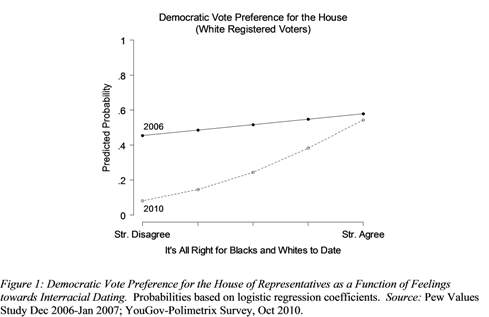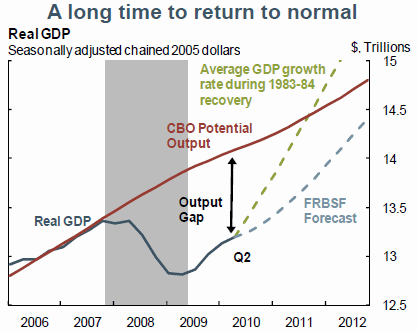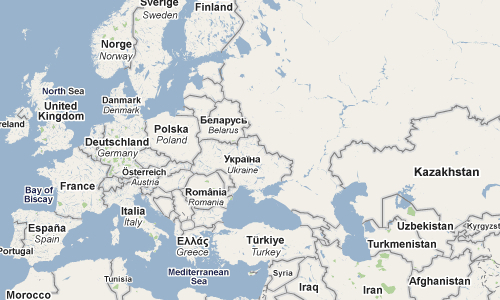Matthew Yglesias's Blog, page 2513
October 31, 2010
Too Many Secrets
And to say a bit more about WikiLeaks, I think that absolutely the most valuable thing the latest document dump has done is provoke so many responses along the lines of "there's nothing new here."
That raises the obvious question: if there's nothing new here, then why on earth was this all classified?
Whatever Assange's subjective overall goals are, one thing he's demonstrating beyond all possible doubt is that there's an overwhelming tendency toward overclassification in the US military. I haven't seen anyone even attempt to assert that literally every single document Assange is released contains life-threatening secrets. They don't attempt to do so because the charge is laughable. And yet, there's the United States military. You and I pay for it with our tax dollars. They go around the world purporting to represent us and to act in our names. We're entitled, in my view, to see their work product. Obviously some degree of military secrecy is necessary, but it's clearly much less than the degree we've now got. Instead a lot of stuff seems to be kept classified merely because it's convenient to stamp everything that way, or else because sparing the citizens the gory details of war is better for home front morale. Or something.


Julian Assange is Not an American
It's a bit pedantic, but let me join James Fallows in noting that the idea that the US government should deem Julian Assange guilty of "treason" necessarily falters on the fact that Assange is not an American. If he's a traitor to any country, it would have to be Australia.
Of course that's neither here nor there as to the core issues, but it's a window in the carelessly and slipshod thinking that many of Assange's critics are engaged in.


Interracial Dating and Vote Preference
I'm not surprised to see a correlation between white voters' inclination to vote for Democrats and white voters' inclination to say interracial dating is okay, but Michael Tesler observes that the correlation is sharply up today relative to four years ago:
Obviously John Boehner isn't going to ban interracial dating, and Nancy Pelosi isn't going to force your daughter to go out with a black guy. One possibility is that the election of Barack Obama has suddenly made irrelevant racial considerations more salient. But my hypothesis would be that we're seeing the link between economic distress and xenophobia, the same thing that's driving so many anti-Chinese themes in midterm advertising.


Transportation and Equality
The idea has gotten out there that reforming American transportation policy to make it less focused on subsidizing automobile ownership is some kind of specifically "yuppie" concern. The reality, as Angela Glover Blackwell explains in a Q&A with Sarah Goodyear, is quite different and the primary beneficiaries of reform would be poor minorities:
There are a couple of things I want to point out in that regard. One is that the bottom fifth of the nation, the poorest fifth of Americans, spend 42 percent of their annual household budget on an automobile budget, more than twice the national average. So for people who are poor, owning an automobile is a burdensome thing.
Nearly 25 percent of African-Americans do not have access to a car, compared that with 7 percent of non-Hispanic whites. You have nearly the same number of Latinos who do not have access to a car. So this is huge, this is not an isolated problem. For people who are spending too much of their income—over 40 percent just to own a car—clearly this has a devastating impact on the economy in terms of all of the things that people cannot do and cannot participate in.
It's only the near-total disenfranchisement of genuinely poor people in American politics and American political media that gives the topic a yuppie cast. Mandatory minimum parking rules that in effect tax non-drivers to subsidize car commuters are a hugely regressive measure. Dedicated bus lanes and more frequent service are a great way to spread the wealth around.


October 30, 2010
The High Earners
I'm not surprised people don't know the answer to this question, but it's interesting that they overestimate so badly:
Any idea what proportion of American families make more than $250,000 a year? Or, to potentially make it easier, any idea what proportion of families in your state make more than $250,000 a year?
Don't feel bad if you don't know – most people don't. The actual number, nationwide is somewhere less than 3% of families earn more than $250,000 a year. What did the survey respondents say when asked this question? The average response was close to 17%! – meaning your typical survey respondent thinks that almost 1 in 5 families in America earn that kind of money, when the answer is closer to 1 in 50!
That seems to imply that most people are underestimating how well-off they themselves are compared to other Americans. A family earning about $200,000 a year is better off than the vast majority of the country's families, but might perceive itself as merely around the 80th percentile.


The 2012 Outlook
Mark Thoma posts the SF Fed growth forecast:
If this comes to pass it would be an enormous human tragedy, with an unemployment rate wildly higher than it ought to be for years and years. The loss in output relative to potential under this scenario is a total disaster. And yet, if Larry Bartels is correct about voter myopia, it's a perfectly adequate 2012 growth rate in isolation to get Barack Obama re-elected.


Responsibility
Bruce Bartlett proposes:
Republicans should savor the period from Election Day to the first day of the new Congress on January 3, 2011. That will be as good as it gets for them; afterwards, it's all downhill once they have to act, take responsibility, and can no longer blame Democrats for everything bad that happens anywhere. That goes for their allies in the business community, who naively assume that every action of the last two years that they opposed will magically disappear. And it goes double for the Tea Partiers, who have never had to take responsibility for anything. It's a whole new ballgame in January.
Maybe yes maybe no. John Sides cites a lot of persuasive data which indicates that voters hold the president responsible for results and not the congressional opposition. So in narrow electoral terms, this may be wrong.
Things look different in interest-group terms. CEOs do want their personal income taxes lower, do want the capital gains taxes they pay lower, and do want to be able to pollute and violate labor law with impunity. But they presumably don't want to see the economy fall into a depression and Speaker Boehner may be "responsible" in their eyes.


Same as It Ever Was
Very funny video from Reason reconceptualizing actual rhetoric from the 1800 presidential campaign as 2010-style attack ads:
I was making a related point earlier today to someone who was complaining about some incoherent public views as registered in polls and how we now have "post-truth" politics. The fact of the matter is that as best anyone can tell levels of political information have always been low and most people have never had coherent political ideologies.
In 1960, for example, a majority of the population hadn't finished high school and the all-white electorates of North Carolina, South Carolina, Georgia, Louisiana, and Arkansas cast their votes for John Kennedy on the grounds that Abraham Lincoln abolished slavery a hundred years earlier.


Is Housing Inherently Bubbly?
Mike Konczal on how to spot a bubble:
In my personal opinion, in the same way middle-class people turned amateur stock analysts was the sign of a tech bubble, or middle-class people turned amateur realtors was the sign of a housing bubble, middle-class people turned amateur credit risk analysts and credit channel intermediaries was the surest sign of a credit bubble.
Adam Ozimek calls this the Beware of Amateurs rule. It strikes me as a particular problem with real estate. Most of the time the vast majority of stock trading is being done by professionals. And you can imagine a world in which average middle class people all wise up and have their money in index funds or we revive defined benefit pensions or the like. But housing, as currently done in the United States, is more or less necessarily a market of amateur investors.
You could imagine a future world in which the vast majority of people rented homes from one of a dozen large nationwide real estate management firms and thus most buying and selling of real estate was conducted by professionals. But that would be a very different world from the one we live in, and getting there would require a large number of changes to tax law, various regulations, and a sweeping transformation of social mores. Until then, you're looking at tons and tons and tons of amateurs making highly leveraged investments. It strikes me as an inherently dicey situation.


Does The Rise of Islamist Groups in Afghanistan Really Threaten Russia?
RFE/RL is launching a new blog, Gandhara, on Afghanistan/Pakistan issues and one new post goes to show that vaguelysketched "security threats" emanating from impoverished backwaters can infect the thinking of great powers everywhere:
Russia is understandably still spooked about any significant involvement in Afghanistan. But, given the pressing security threat Afghanistan poses Russia, it's indicative that there hasn't been far more cooperation. Islamist groups are burgeoning north of Afghanistan's border in former Soviet Central Asia — most recently Tajikistan — where thousands of troops are battling an insurgency that's staging ambushes and bomb blasts, and, the authorities say, establishing links with the Taliban.
I find it's often helpful in these cases to consult a map:
Afghanistan is further from Russia than Iraq is from Romania. Indeed, Russia is considerably closer to Iraq than to Afghanistan. And that's "as the crow flies" which involves passing through the Caspian Sea. By land, the route from Afghanistan to Russia is extremely large and involves passing through at least two other countries.
Now that's not to say that Russian leaders don't have a subjective perception of a threat from Afghanistan. After all American leaders seem to have a subjective perception of a threat from Afghanistan, and Russian leaders definitely do have a subjective attachment to attempting to dominate former Soviet Republicans, some of which are legitimately near Afghanistan. But as best I can tell, from the Anglo-Russian contests of the 19th century to the Soviet invasion to the current USA COIN era this is all a repeated exercise in people squandering resources. The "graveyard of empires" schtick is, it seems to me, trite and misleading. The real reason all these powerful nations end up leaving Afghanistan is that it continues to be very remote and lacking in valuable resources. So remote that "threats" emanating from there are extremely difficult to describe in concrete terms once you allow that threat-suppression should not be more costly than the threat itself.


Matthew Yglesias's Blog
- Matthew Yglesias's profile
- 72 followers






